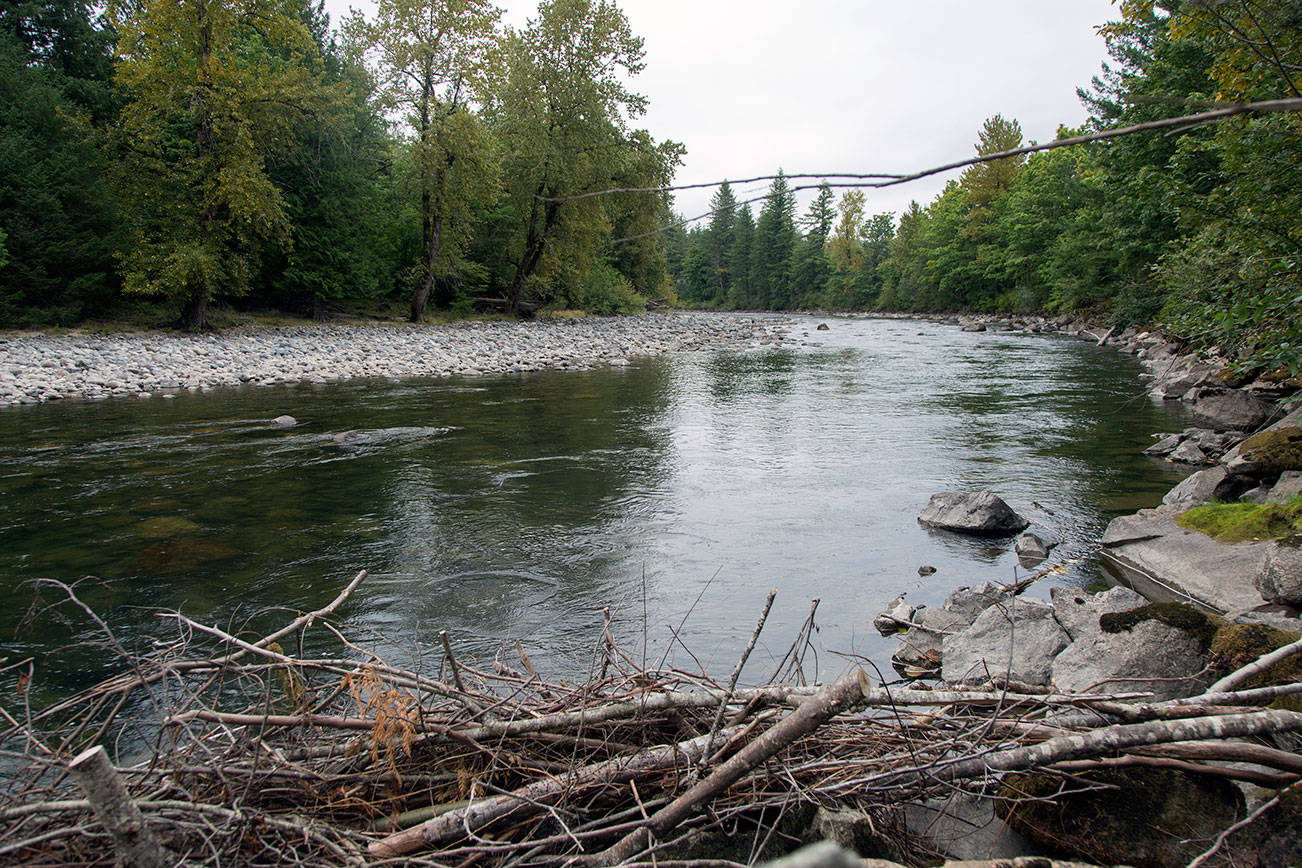The North Bend City Council again approved a water system plan that outlines how the city will provide service to its customers over the next five years.
The council voted on Feb. 2 to again approve a plan after the King County Council had approved the plan on Jan. 27. A public hearing before the city council vote again drew a considerable number of residents voicing concerns and opposition to the water plan.
The plan now needs approval from the Washington state Department of Health before it is finalized.
In October, the county’s Utilities Technical Review Committee recommended the county council approve the plan, which the county council did in an 7-2 vote, with county council members Rod Dembowski and Dave Upthegrove voting against it. Dembowski questioned whether the Muckleshoot Tribe had been adequately consulted.
The water service plan importantly includes two large parcels that could be developed into a 212-unit housing complex and a new National Guard armory. These parcels would have their water supplied by North Bend if the plan is fully approved.
Tribes respond
The proposal has generated concerns from local tribes over the potential impact to the Snoqualmie River.
Both the Snoqualmie and Tulalip tribes sent letters to the King County Council expressing concerns over draft copies. The copy of the water plan, which the Utilities and Technical Review Committee recommended for approval, was not the same draft that was approved by the county council on Feb. 2.
“Since the initial release for public comment, the city has substantively changed the contents of the (water system plan) several times, including a more recent update in January 2021, which to our knowledge has not been publicly released. The Tribes request the council reschedule consideration of the (water system plan), in light of the fact that neither the council, nor the public, nor many government agencies have been given time to consider the changes in service area, estimated number of connections and the complexities of the changes to the mitigation system,” the letter states.
Mark Rigos, North Bend public works director, said at the Feb. 2 meeting the city has been talking with representatives of the Tulalip Tribes, especially regarding a small mitigation water source the city acquired. There are concerns with water quality and temperature.
The Snoqualmie Tribe also submitted a letter voicing similar concerns as those expressed by the Tulalip Tribes’ letter about the submitted water system plan.
Matthew Baerwalde, environmental policy analyst for the Snoqualmie Tribe, said they hope to ensure that North Bend’s water system plan is based in responsible development practices, and that the city follows through with the conditions of their permit. One such condition is the city must secure a backup water mitigation source, which it has yet to finalize.
“Our concern has been and continues to be that looking forward, we know that we’re going to have challenges with climate change, and we also know that there’s going to be future pressure to grow, and both of those together and combined can be expected to put additional stress on water resources,” Baerwalde said. “So we just want to make sure that as we’re planning things, ultimately it’s not the Snoqualmie River that ends up paying the price.”
North Bend has a current agreement to buy mitigation water — to pump back into the Snoqualmie River when flows are low in the summer if needed — with Seattle Public Utilities. But during dry years, like 2015 when North Bend failed to meet its mitigation requirements, the Department of Ecology requires the city to have another source of mitigation water. The city had been in talks with the neighboring Sallal Water Association for more than a decade before negotiations collapsed last year, leading to a spat between the two water suppliers. The city has suggested other options, like a new pipeline to Seattle Public Utilities’ Chester Morse reservoir, which would be an expensive option.
Health of the Snoqualmie River
Clean, cold water in salmon-bearing rivers is critical for the fish, which can be harmed by warm water and low flows.
According to a 2016 study by the Washington State Department of Ecology, the seven-day average daily maximum temperature for the river between July and September of that year was significantly above the state standard.
These salmon are important for tribes, fishers and the environment. The Tulalip Tribes have a treaty-protected right to fish in their usual and accustomed fishing places, a right enshrined by the Treaty of Point Elliot. That same treaty guarantees the Snoqualmie Tribe the right to hunting and gathering roots and berries throughout the state. Both rights are tied to the health of the Snoqualmie River.
Salmon are also the favorite food of orca whales. The Orca Conservancy’s Executive Director Shari Tarantino also sent a letter to the North Bend City Council on Feb. 1 about the water system plan. It states there are several populations of threatened salmon that rely on water that flows through North Bend. Both are below 10% of their estimated historic population levels.
“If the North Bend water system plan is approved, as written, it will not only be disastrous for the future of the Snohomish watershed, but for the salmon, orcas, and especially for our children’s right to grow and develop under favorable conditions along with being able to live in a healthy environment,” the letter states.
It’s unclear when the state Department of Health will issue a decision on the water system plan.


